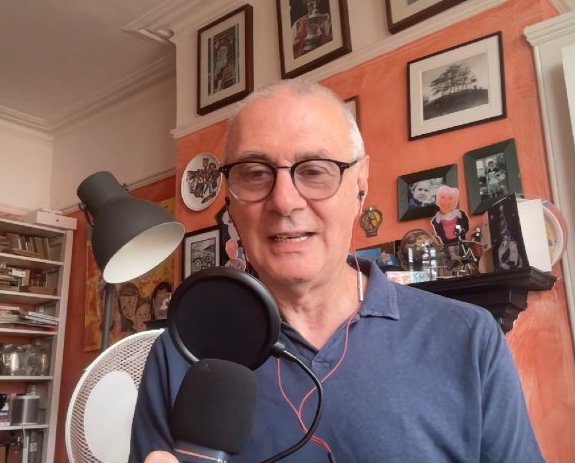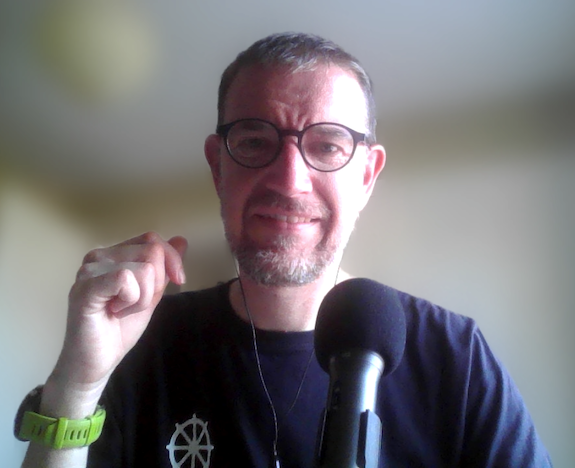Ed talks with Alexis Batlle, CEO and co-founder of traveltech start-up AVUXI, and one of the very few people to speak at Geomob in multiple ciites (London and Barcelona).
Note: this interview was recorded before the Coronavirus crisis really
gained momentum. While the virus is obviously having a dramatic impact on the
travel industry, we don't discuss that here. Instead we chat about some of the general trends in the travel industry, including the emergence of Google as a
competitor to the large travel booking sites.
Relevant links:
On the Geomob podcast every week we discuss themes from the geo industry, interview Geomob speakers, and provide regular updates about our own projects.
Popular podcast topics:
The Geomob podcast is hosted by:
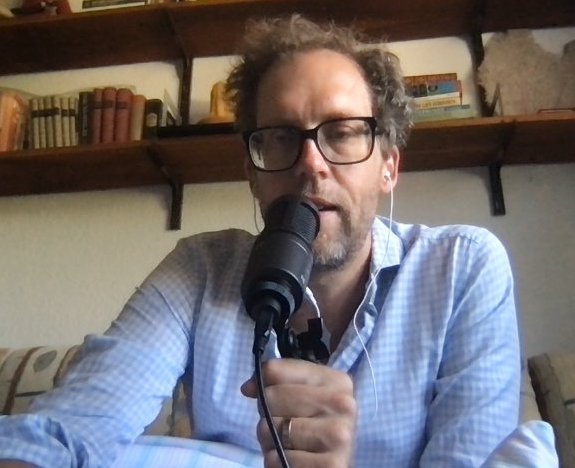
Ed Freyfogle, co-founder of OpenCage
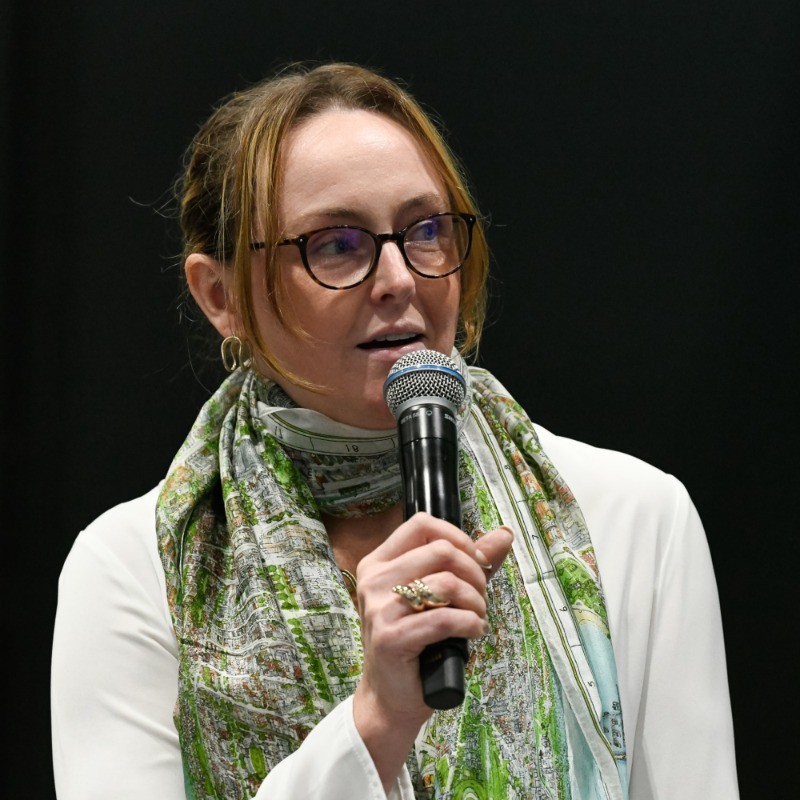
Denise McKenzie, Managing Partner, PLACE Trust.
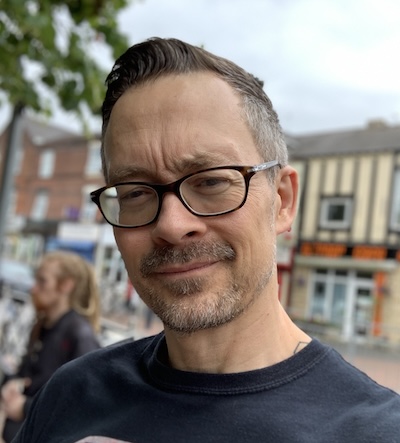
Jeremy Morley, geospatial scientist with experience in government and academia.
Autogenerated Transcript:
Ed 00:01 Welcome to the geomob podcast where we discuss geoinnovation in any and all forms get for fun or profits. Hi everyone. We're here for episode eight of the geomob podcasts today. I am very fortunate to have Alexis battler, CEO and co founder of AVUXI. Alexis is one of a very short list of people who have actually spoken at Geomob in two different cities. He's presented in London and here in Barcelona, which is where he is based. Alexis, welcome to the podcast. Tell us about AVUXI.
Alexis 00:34 Thanks. Yes, well I will see a company we set up with one very clear goal which was done as a result of a very frequent traveling and a kind of not having much time to prepare and understand different locations. So imagine you have to go on a very short notice to any given city anywhere and you have a couple of days or short time to be there. And always there is the same question, which are the most interesting things or most interesting areas, which are the hotspots, the popular zones or areas in this, in this town, in this city. And this is something I've always been kind of painful to figure out because it takes time. Either like asking for advice or reading through reviews on different sites or, or just spending time in a given city and taking the time to go around. So I thought that when we were starting that there must be a better way to do this with so much data out there of different venues.
Alexis 01:36 Everybody has a mobile, everybody's leaving reviews and some sort of signals about their interaction with location. So we set up our AVUXI to analyze many different sources and types of data that connect people how they interact with our locations and create a, a way to understand any given season in just a second. So we have created different products that help you visualize like heat maps of the best areas in any given city or location scores that help rate any given location. And in essence, it's just that, how can I look at a city or a town or a location and understand what's the most interesting, the most popular is there.
Ed 02:21 And you, you do this for the whole world.
Alexis 02:23 Yes, yes. So we started of course trying to do a demo with only one city, but shortly after we realize that the type of companies we wanted to work this and as a use case for people traveling, there was a lot of interest to have this worldwide. So we spent an extra year and a half working it out. So we got worldwide coverage.
Ed 02:45 Who are the customers? Explain the business model behind this? Yes,
Alexis 02:48 well it's a lot of use cases and we've tried different things. We're still cooperating in some different areas, but our main focus right now on what we have really worked very intensely with is online accommodation. Imagine like hotels.com booking.com Airbnb. Companies like that help you find your accommodation wherever you travel. You know, you go to Miami beach or you go to London and you need to stay somewhere, right? So now most people do this online, they go to these websites and they search. But the problem is you get thousands or at least hundreds of options. I would feed to your pricing and quality criteria. We help these companies to provide this additional layer of information, which is understanding the context of the location was the best location for you?
Ed 03:40 Yeah, so critical. So it's a, it's a, it's one of my big complaints when I try to use Airbnb or something cause usually it's in some city you don't really know that well and you get the details of the property, but then you don't know like, you know, especially when I'm traveling with kids. Is this going to be a kid friendly area? Is this, tell us about all this data that you guys are aggregating. What are the data sources? Where are you getting the data?
Alexis 04:01 Well, we started with, of course with open data and then started adding everything that's public data. So we will to a series of scrapers or web crawlers that go across the web and analyze information that's being publicly posted on different sites. So of course we start with open street maps, Wikipedia, all the different type of Wiki media. We keep travel and then, uh, then we have some blogs, we analyze about travel. But of course then we also have, uh, Foursquare places take a look at those venues. We have on TripAdvisor, we analyze what changes happen there. You know, companies like Yelp, these are those known ones. But in total we are, we're doing this with 70 different resources on their web. And there is an interesting thing here that we, we have some filter system of different weights because when you go to a different geography like China or Russia, some of this Western very well known sources banned there so they have more relevant local sources where you find more information is more up to date, et cetera. So we are, we are looking at everything we can, let's put it this way.
Ed 05:17 So I can imagine, I mean, you know, trying to make something simple and having looked at your service, that's the key value proposition right? Is that if you boil it down and de duplicate it and you reduce it all to a simple score or to a heat map and it's very easy to then get the context of the location. But I can imagine, I mean, there must be so many, so much work going on behind the scenes there. I mean, what are, what are some of the technical challenges though? Definitely,
Alexis 05:42 I mean, being very transparent, honest about this, we didn't realize the level of the challenge and the complexity of the task when we got into doing it. It's one of those things that you uncover what we call underwater as you go. And it's definitely challenging because even you go to Foursquare or TripAdvisor and these are major companies or like within the, you know, positioning the hundreds of millions with thousands of people working for them and so on. And still you can go to different places and encounter the same venue being duplicated or appearing several times. And um, it's a challenging for them. Even for companies like Google, etc. So no one has a hundred percent accurate coverage in real data. And imagine trying to analyze data coming from so many different sources in different four months. We do analyze every type of signal that we believe it's meaningful. So it's not as simple aggregation task.
Alexis 06:43 It's about understanding these different signals. It's a lot of trial and error, trying to get an outcome out it that's actually simple and meaningful and easy to understand. And also like cleaning up. Did you think that data, trying to build algorithms that make it automatically to a large extent, we have tried different things with machine learning, et cetera, but we learned that there is always some amount that requires some human interaction at the end. And we're very proud that we've made it to be as automated as possible to this stage. It's really, that's really great. Uh, but it's, it's, it's a ongoing challenge, so always working.
Ed 07:22 Sure. I mean this is the big, the big challenge of geo of course, as the world keeps changing, unfortunately. So it's a nightmare. You've got to keep it fresh. So an extra layer of challenge. So how do your customers then, I mean the customers aren't the hotel booking sites and things like that, how did they use the service that they're using it? The data, the raw data as an input or like what is the actual final product?
Alexis 07:43 We have little things as road data. So what we provide, so already, um, a product that is a result of not analytics or these analysis of different data sets. So what we try to provide is the value of giving these generate insights, which is what actually people care about. We have different products of course we have a bit more detailed data that we provide the API and then we also will uh, you know to make it easy for everyone. Also for appliance, we will what we call plug and play products or elements that would allow any of our clients just to set up what they want and get with two lines of code, just a front end developer candidate to their website on already enriched experience and provide this additional info for two users. This plug and plays for example, are like, you want to add additional map layers. Like what are the actual neighborhoods and city was the city center. It's a different shape and size for different cities or what are the heat maps of the most popular areas for treating or shopping or nightlife or then you want to add location scores and description that that context or any hotel or an apartment. Okay. What's this area like? So it's a great area for nightlife or is it great for them? You know it's a good location for going out, shopping, reading out. So we provide these kind of easy to integrate and descriptions.
Ed 09:18 I know that you're doing this on some actually quite massive sites. I mean I know a kayak is a customer of yours, which is one of the, you know, the biggest booking engines in the world. So you know there must be quite a dev ops challenge there just in terms of dealing with that volume.
Alexis 09:35 Yeah. This is also part of what is the invisible part of the iceberg, which is once you will the product, let's say fine tune it to provide meaningful results. You are happy with the results. Actually those enhance experiences then how you make it commercially usable for these kinds of very large companies and society. And, um, it is a challenge because we have, when you're serving mop tiles at this level and uh, we have several million while right now we have, yeah, it's about, uh, under 2 million unique daily users of the system which come through these clients we have. And um, it's a lot of traffic. We're talking of hundreds of million requests per day. So we had to go through all the hoops and loops on building the infrastructure that would allow to scale and so on. Of course with all the cloud services nowadays available, it makes it easier than just a few years ago. But still it's a challenge. You need to do all the load balancing and the different proper coerce for different areas, optimize your own systems. So it's also commercially viable. It's not super expensive to do that. So it's taken us quite a bit of time to fine tune this to be able to cater to this kind of clients. And so far we haven't had any, any major issues on this and everybody's really happy.
Ed 10:58 Hmm. Well congrats. There's one dynamic that, you know, I, I tracked the travel space a bit and there's one dynamic that I wanted to ask you about and that is the entrance of Google into the space. So many, many consumer sites, be it hotel booking sites or whatever. Of course use Google maps and Google has excellent geo products and services. But on the other hand, these services also spend heavily on Google to drive their traffic. And yet it seems Google is more and more entering into the booking space as well. Like now you can, yeah, if you search for a hotel on Google maps though, people can put ads directly, they can set up sending you, giving you a link to the hotel. It gives you a booking form directly, you know. And so to a degree that the booking sites are paying Google to slowly but surely kill them. How, how do you see this dynamic? I mean it seems it's quite our people as a result moving away from Google maps and you know, Google maps raised their prices last year. Obviously I'm sure the huge booking sites they have, you know, special deals and things. But how does that play out as, as someone who's observing this industry and is there a role for startups like Gucci in this, in this battle?
Alexis 12:02 Yeah. Well this is a really great topic and uh, I fully agree with what you said. It's something we saw coming already four years ago or maybe earlier that Google will eventually get to be a major player in this field and us, somebody who follows the news. So you could see that the results of X companies like Expedia or TripAdvisor, you know, there's talk has tumbled lately new too, and they pretty much point out to Google, move into online booking.
Ed 12:37 Huge strategic threat.
Alexis 12:38 Yes, it is a thing that as you say, we always saw, well, you're pretty much feeding the monster that eventually will eat you up. And I think one great way to describe what's one of our clients when I mentioned this couple of years ago, what's what you're doing so well with Google. We have a love hate relationship and that describes it really well because Google is, it's a great company. They have been pioneer in leading really great products and uh, they have some of the best talent on the planet. They have infrastructure, they have, you know, very smart people. They have billions of users. So because they're so great, it's probably the worst adversary you may have if they decided to be on your business because they make break some eggs in the beginning. And not everything Google does goes perfectly right from the start. But they do have the time on their side and if they decide to keep going after something, they'll get it right eventually.
Alexis 13:39 And this is what we see. So the thing is that once Google goes into something and as, as you mentioned over a year ago, they raised their map pricing or geodata pricing 27 times. It's amazing. What's also amazing is that they, they have managed to probably shut off a lot of small, uh, users that were not paying much. And uh, they're still keeping many of the large companies because it's still a great alternative. But we see more and more companies looking for alternatives. And um, my personal vision on this is that even if there is great companies, they always has to be some competition and options. That's a must -inaudible- market for, for innovation sake, et cetera. It's not good if, if someone has a kind of monopoly on things. So in that sense, what we have seen is that there is more interest for what we do if there is more attention.
Alexis 14:35 If people were, we saw more clients that were more complacent and they were getting things from Google and that was good enough. Now this thing about having to pay for it, it has brought up the value of geo data on the market. We see that there's been sort of repo across the space in a way we see the good side of it. It has brought up the relevance and the cost of processing this data. And, uh, we see a lot of interest for companies like I will see that provide an alternative solution at a good price. And what is a good side to it as well.
Ed 15:12 On the map side of things are, are these companies typically looking at something like open street map and if so, are they working with napping providers? Are they trying to do it themselves in house and, or are they looking at other proprietary suppliers like you know, being maps or Apple maps or whoever there is. Yeah,
Alexis 15:30 we've seen a bit of everything. We are also interesting. Apple maps is apparently doing a great effort to improve their maps that have been in the last year. So let's see how that plays out. They just recently launched full coverage of us. Yeah. So that's, let's see how that goes for the rest of the world. But in terms of, we've seen a bit of everything. So some of the companies we see most benefited from. This has been, for example, Mapbox it's an alternative provider of map to Google maps. Then we see some companies have adopted open street and they switched. And, uh, in some cases is true. Some smaller providers that do custom versions of open street maps in some cases it's in house in a way I think is great for this space because there is more willingness to look at other options than just blindly taking Google. I
Ed 16:21 yes, I agree. I agree in that regard. So it's a, something we'll keep an eye on here and uh, come back to revisit here on the podcast. The other topic I wanted to get your opinion on, so, so you're based in Barcelona and you've been here for several years. It feels like the travel tech scene has been growing quite a lot, so maybe you can give us your perspective on that and what's happening in Barcelona and how you see things developing now. Well,
Alexis 16:43 I moved to Barcelona for the first time 10 years ago and to me it struck me like the idea of place in Europe too, you know, for startups to try it well because it's was perfectly connected. The quality of life and price ratio, the weather. I remember back in those years, there was a VC from Silicon Valley visiting and his impression was in Barcelona. He did a tour of Europe and his impression was in Barcelona was the closest a feeling place to San Francisco in Europe as a place. And that was a very interesting thing that back then there was maybe one meetup related startups every two or three weeks. I felt this is totally like not there yet, but the potential is great. And uh, I'm very pleased that 10 years later, uh, Barcelona is one of the top five cities on the map of, in Europe or uh, start capital sort of so to speak. Probably they started capital of South of Europe and a lot of all of this happening there is no day without events, Sundays.
Ed 17:58 Sure. The events all the time. But can you talk a bit about that? What about the travel scene in particular? How do you see things happening in there?
Alexis 18:07 Yeah, there is a, well there's been already so sort of startups that became like major companies like for example in dreams is a very well known that we see that there's many startups at span and now becoming more and more established companies. One of the hotbeds of online accommodation trolley, it's also based not far from Barcelona in the impoundment in my and my Orca, so the headquarters of major hotel chains and uh, for some companies like travel perk, which is probably one of the fastest growing trials startups has its headquarters was set up in Barcelona. It's, there is quite a few that are happening and I think at this point when it's possible to build really world leading startups from almost any location in the world, this is becoming true, which is great. Again, speaking of diversity and different options, this is I think a very interesting thing. Happy to see that it is happening.
Ed 19:09 What strikes me is we have a good mix of local startups but also of international companies that have put their kind of development or product teams here in Barcelona. Like Skyscanner has some stuff here and it does feel like it's kind of getting critical mass, right with more and more travel, travel tech startups and events and things. I thought so. Hopefully in the coming months,
Alexis 19:30 major, major trunk combos have office as much as like booking.com you mentioned Skyscanner, he we would choose company from the Czech Republic. They also opened recently, so it is a very attractive place for what they are. The reasons are we see many of these companies doing that and not to mention Facebook or Amazon machine learning unit, et cetera, et cetera. So Barcelona is very interesting place in that sense and I think I'm five more years and it will be very, very interesting place because of all the talents, all the exits so that it will be happened by then, etc. It will becoming an even richer.
Ed 20:09 Let's hope so. Let's hope we can get some of those companies to come and present to them on persona. Alexis, what can we expect in the future?
Alexis 20:15 Yeah, well right now we're trying to, I achieve our first goal, which is becoming one of them. This standard providers on this turn of location, context layers within the online accommodation and the travel industry. And uh, given the companies we're working with kayak with trout for flight center, Logix travel. So we're cooperating with commandos, we're getting more and more noticed in the space. We're getting more and more incoming requests from more and more interesting companies. And our first goal is to secure that position and grow within it, but then we cannot be oblivious to the changes and the phosphate of technology. So we're really keeping an eye open on, on new things like augmented reality applications, et cetera. Because at the end, what we're trying to do is use technology to make life more enjoyable and easier and have a faster way of getting knowledge in both location from out to people to the end user. And this is one thing we're looking at, like these couple of things. She's conversational chatbots on a wench reality. So we would like talk by the current data we have with some adjustments. So then they could be embedded on, on the goal since we, our goal is to give you knowledge in seconds instead of spending time trying to research this is an ideal environment for you. So if we look at it from the food touristic perspective, which is actually becoming a reality in the, in the short term, that's where we see are some going.
Ed 21:57 Yeah, I mean very exciting space. At the last year mob in London, we had a super cool augmented reality presentation. It's still kind of in the prototype stage, but, but definitely a space to keep an eye on. So. All right, well let's close with our traditional question. As someone who's attended geo Mav and multiple cities and um, I think you've been at almost every Barcelona event. Any, um, favorite events that have stood out at geomobs that you've been to any talks you really enjoy it?
Alexis 22:22 Every time I've been at this always been at least two or three presentations that we are living like amazing in the sense that you sold things that were done, that you didn't think they were happening. And of course the brightest memories is from the last GMOs in which quite recent in Barcelona, a couple of cases release two, that was one, for example, one, I forgot the name, but where they were doing analytics of the wind.
Ed 22:49 Yeah. The mapping the wind.
Alexis 22:52 Yeah. Marvin and when they had also heat maps, et cetera. But it was tough to use once you're gliding in the air to really know to kind of do the best route for gliding on the glider in the air. You know, it's, and that was pretty demanding and interesting data that they had to pull on generating this analytics. So that was quite something revealing. Um, another one that also I found quite intrigued because in a way it's related to what we do, but also because things go so fast. There was one about, they were recreating from old century old photos regretting a three D model of how was the CT bug then like 50 years ago, a hundred years ago. And uh, that was also quite potentially very interesting because things move so fast, we tend to forget. But if have a way of preserve for digital memory that's kind of adapted to these days so you could do an immersive experience of Trini or looking at the same part of the CT or maybe having your office at and understanding how it was hundred years ago. That was quite also impressive.
Ed 24:07 I agree. I agree and absolutely fascinating talking and very, very cool video that everyone should take a look at. I mean, I'm hoping to get both of those speakers here on the podcast in the coming months. Absolutely. Excellent. So all right. Thanks very much Alexis and LIS. I guess, I guess the final point is what's the best way for people to get in touch with you or to learn more about Bootsy wood? Where should they go?
Alexis 24:29 Yeah, it's very simple. It's a way just, I will see.com or just search for top place on Google. You also get the links to our site because our brand product is called top place. It's how you seed and branded what provides on, on all these different sites like kayak, Momondo, et cetera. And um, as they, they use this way.
Ed 24:56 All right, perfect. We'll make sure we get some links in the show notes and look forward to watching you continue to to grow and congrats on how far you've come. Thanks Alexis. Thank you.
Ed 25:09 Thanks everyone for joining us today and listening to the geomob podcast. Hopefully you've enjoyed the discussion. Please don't hesitate if you have any feedback for us or any suggestions for topics that we should cover in the future. You can get the show notes over on the website, which [email protected] why are there, if you're not yet on the mailing list, please do get on the mailing list where we once a month send out an email announcing future events, summarizing past events and just generally sharing events that you may find of interest. You can also of course follow us on Twitter where our handle is geomob. You can follow Steven at StevenFeldman. You can follow me @freyfogle you can check out Mappery at mappery dot org and of course if you need any geocoding, please check out my service, which is opencagedata.com We look forward to you joining us again at a future episode or end of course, seeing you at a future geomob event. Hope to see you there soon. Bye.
